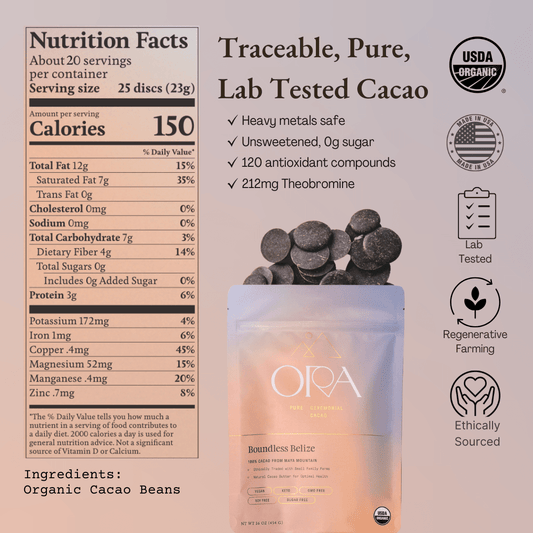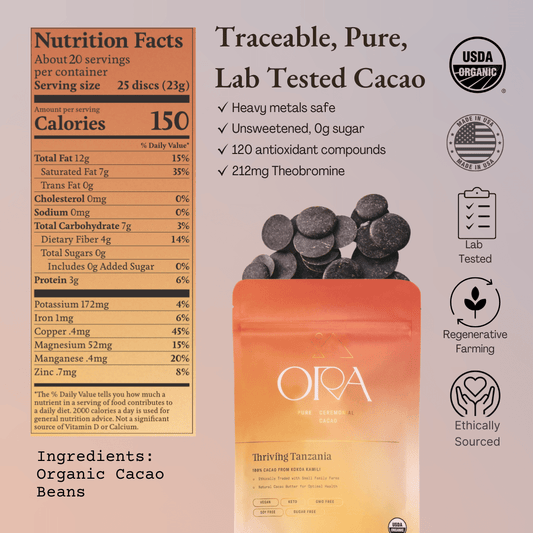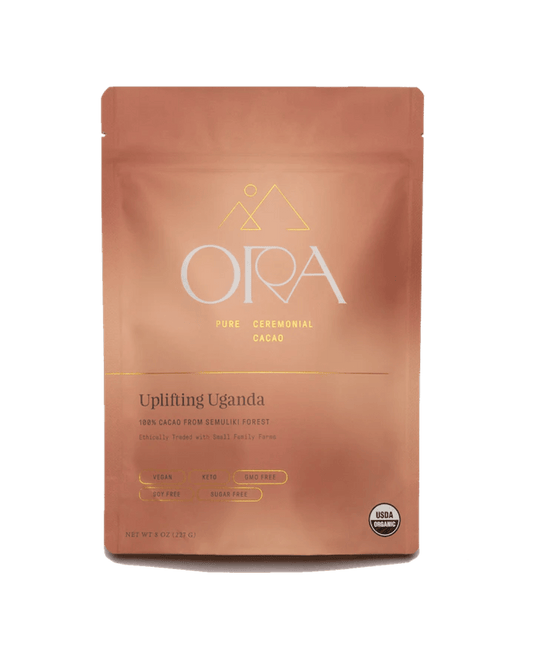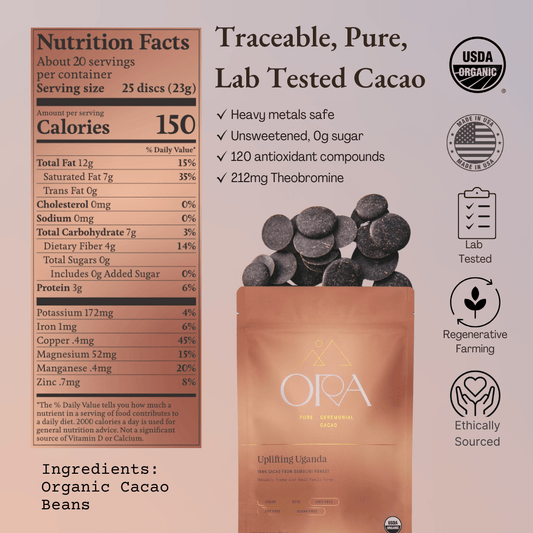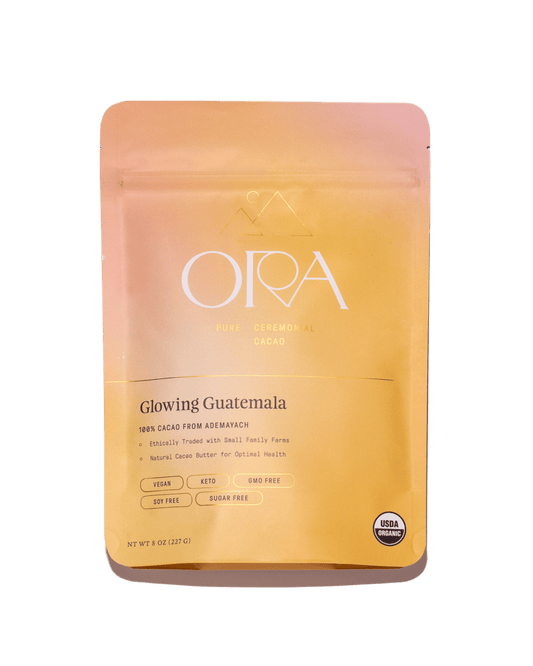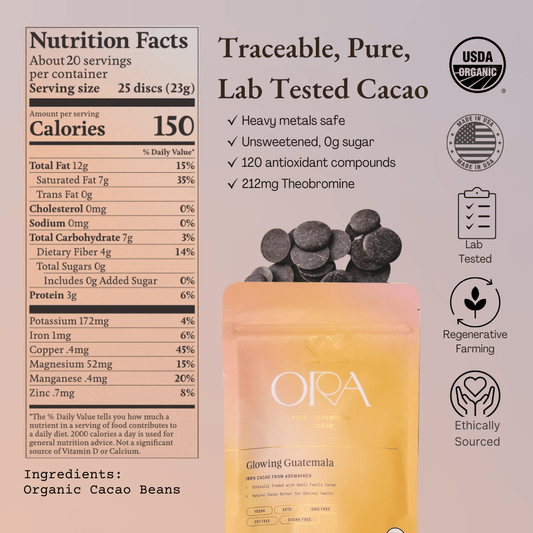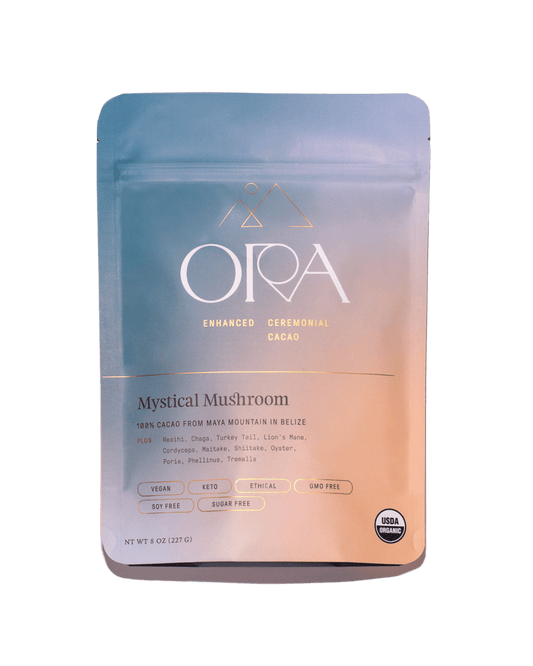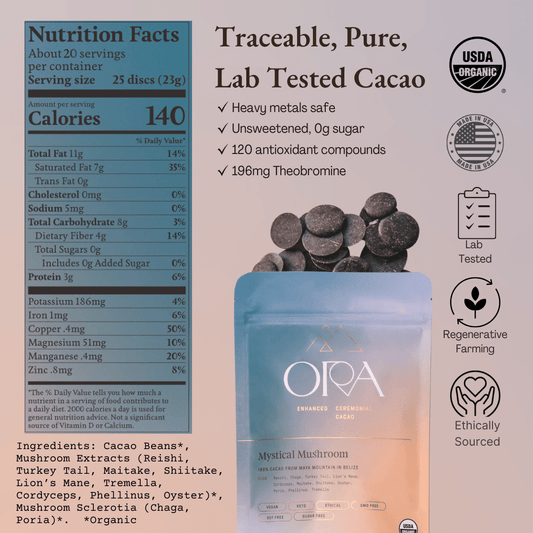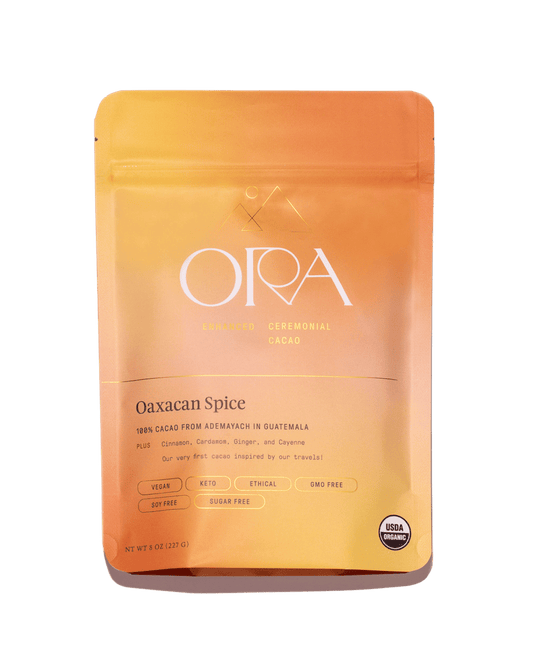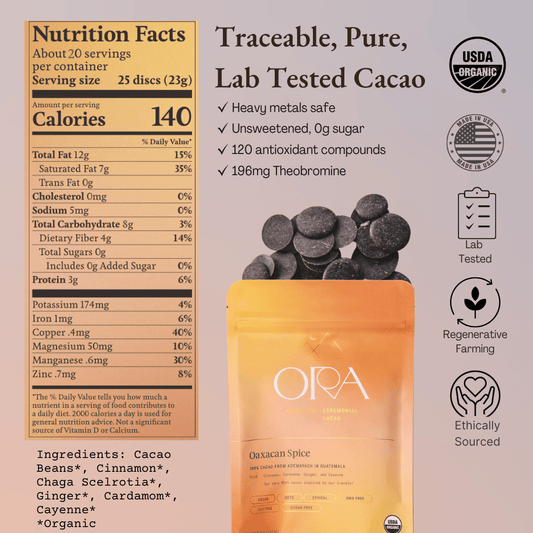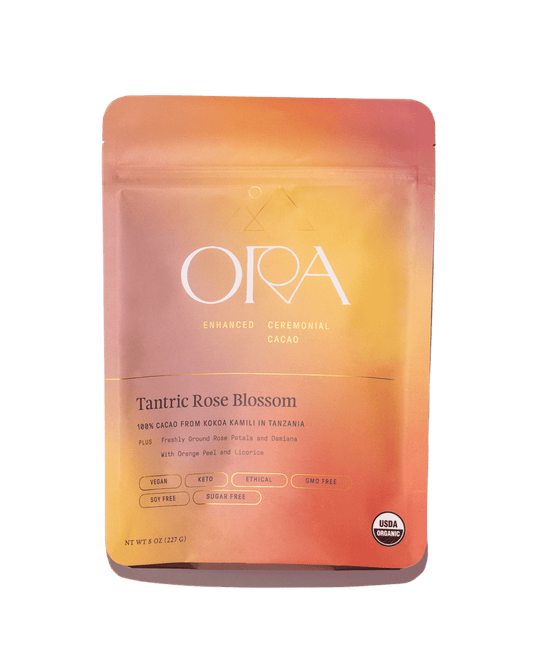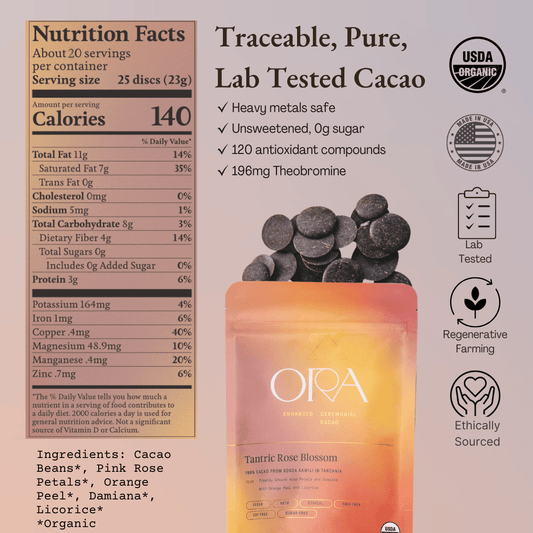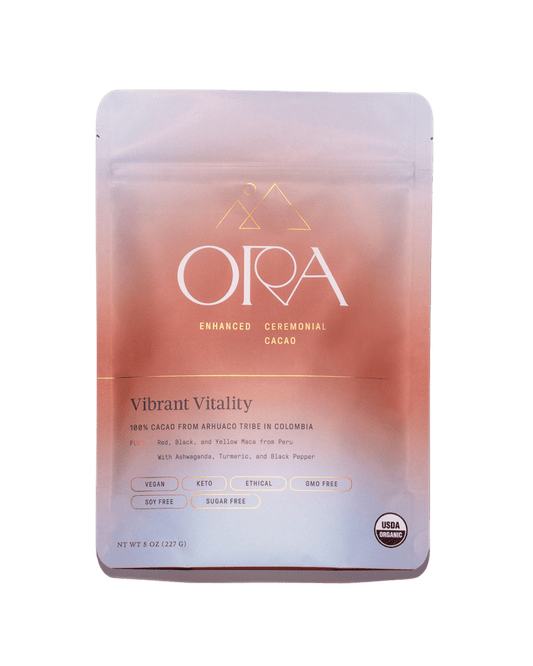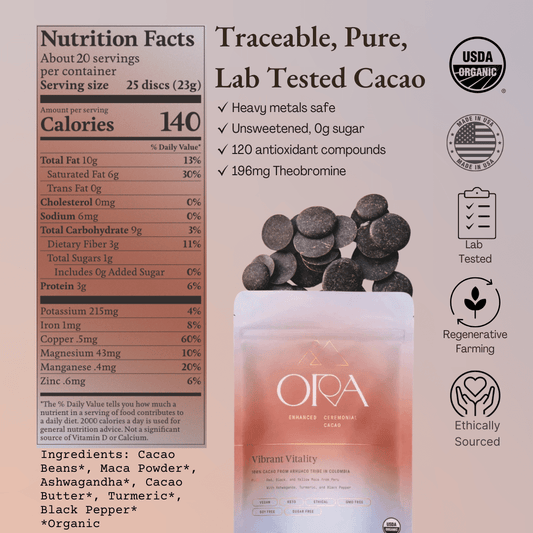Regeneration is at the heart of everything we do. It’s how we honor cacao as a living bridge between people and planet, a reminder that true nourishment begins in the soil. Beyond flavor or yield, regenerative farming protects biodiversity, restores balance to tropical ecosystems, and keeps cacao trees - and the communities who tend them - thriving for generations.
Continue reading to discover how regenerative farming sustains the spirit of cacao and why it’s essential to the quality, vitality, and integrity of every cup.
The Living Roots of Regenerative Cacao

Every sip of ceremonial cacao begins long before it reaches your cup… in the soil, the shade, and the hands of smallholder farmers who tend the land.
At Ora, we source exclusively from small family farms, usually just half an acre to five acres in size. These farmers grow cacao in biodiverse agroforestry systems where cacao trees flourish alongside banana, plantain, avocado, coffee, and other companion crops. This diversity enriches the soil, conserves water, supports pollinators, and protects the surrounding rainforest.
Unlike monoculture plantations, regenerative systems mirror nature’s rhythm. Farmers nurture cacao through practices like chop-and-drop pruning, moon-cycle harvesting, and soil enrichment using compost and minerals gathered close to home. Each method keeps the land fertile while ensuring the trees remain healthy, resilient, and alive with energy.
Regenerative farming also strengthens local food security. By growing staple crops alongside cacao, farmers can feed their families and communities while maintaining thriving landscapes. It’s a living example of balance, giving back as much as they take.
Beyond Organic: The Heart of Regeneration

From the beginning, Ora has been deeply committed to certified organic cacao. This certification isa safeguard for the soil, the farmers, and the planet. Certified organic cacao must be stored and shipped separately from other commodities and cannot be fumigated with toxic chemicals, ensuring purity and safety all along the way.
But regenerative agroforestry goes beyond organic certification. On our partner farms, practices like building topsoil, stewarding watersheds, and increasing biodiversity nurture long-term vitality in the ecosystem. In many cases, the cacao farms serve as buffer areas for protecting untouched pristine and second growth rainforest areas.
Growing cacao in harmony with the ecosystem requires patience and it requires listening. Only by tuning in to the web of life that is the tropical rainforest and diligently observing the many relationships at play, can we identify how we can participate in ways that contribute rather than harm. We admire our farmers so much as they’ve implemented many beautiful practices that amplify the health and thriving of the rainforest.
To drink cacao grown in this way is to participate in reciprocity, to honor the Earth’s intelligence and the hands that care for it. Each sip becomes a quiet act of regeneration… a reminder that nourishment and stewardship are one and the same.


